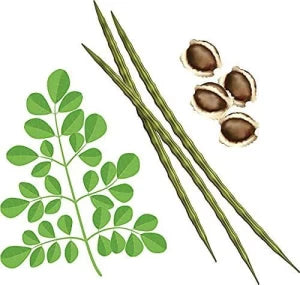In the realm of sustainable agriculture and economic empowerment, Moringa Oleifera, commonly known as the "Miracle Tree," is emerging as a catalyst for change, particularly for women in rural communities. This article explores the intersection of Moringa cultivation and women's empowerment, highlighting how this versatile plant is not only nourishing bodies but also nurturing the seeds of economic independence and gender equality in farming communities worldwide.
The Power of Moringa: Beyond Nutrition
Moringa is a versatile crop that has gained popularity in recent years due to its numerous benefits. This plant has the potential to provide sustainable livelihoods to women farmers, especially in rural areas. One of the key benefits of Moringa is its fast growth rate, which makes it an economically viable crop. Additionally, Moringa is adaptable to a wide range of soil and climatic conditions, and it requires minimal amounts of water and fertilizers to grow. This makes it an attractive option for women farmers as it offers a steady source of income with low initial investment.
The global demand for Moringa products, including leaves, seeds, and oil, is increasing. This opens up diverse market opportunities for women entrepreneurs who can produce and sell these products. The demand for Moringa products is driven by its numerous benefits. Moringa is a rich source of essential vitamins and minerals such as vitamins A, C, and E, calcium, potassium, and iron. It is also a good source of protein. This makes it an ideal crop for combating malnutrition and improving nutritional security, especially among women and their families.
Furthermore, Moringa has medicinal properties that have been used for centuries. Traditional and modern uses of Moringa for health care offer women opportunities to engage in the production of herbal remedies, further diversifying their income sources. The plant has anti-inflammatory, antifungal, and antimicrobial properties that make it effective in treating a wide range of ailments. For instance, Moringa is used to treat skin infections, digestive disorders, and respiratory problems. Women can tap into the medicinal properties of Moringa to produce herbal remedies that can be sold locally or exported to other markets. This creates more income-generating opportunities for women farmers, contributing to their economic empowerment and overall well-being.
Cultivating Economic Independence through Moringa Farming
Skill Development and Education
Agricultural Training: Initiatives that provide women with training in Moringa cultivation techniques empower them with the knowledge to maximize yield and quality, enhancing their market competitiveness.
Business and Financial Literacy: Programs focusing on business management, financial literacy, and entrepreneurship equip women with the skills to navigate market dynamics, manage finances, and grow their Moringa businesses.
Building Supportive Networks
Cooperatives and Women's Groups: The formation of women-led cooperatives and support groups fosters a sense of community, enabling knowledge exchange, collective bargaining, and shared access to resources and markets.
Partnerships for Market Access: Collaborations with NGOs, government agencies, and private sector partners can provide women farmers with access to broader markets, including international markets, increasing their income potential.
Overcoming Challenges: Pathways to Empowerment
Addressing Gender Barriers in Agriculture
In order to improve gender equality in agriculture, it is important to advocate for policy reforms that ensure women have the same rights to land ownership, access to agricultural inputs, financing, and technology as men. Social and cultural norms need to be challenged in order to encourage gender equality. Community-based initiatives that promote the value of women's contributions to agriculture and economic development are crucial for changing perceptions and empowering women.
Enhancing Resilience and Sustainability
Women's livelihoods in agriculture can be safeguarded through training in climate-resilient Moringa cultivation practices. This can help them overcome environmental challenges and ensure long-term sustainability. Encouraging women to diversify their Moringa-based products and explore value-added processing can reduce their vulnerability to market fluctuations and increase profitability. This can provide them with a more stable income source and help promote economic growth in the agricultural sector.
The Future of Women's Empowerment in Moringa Cultivation
Leveraging Technology and Innovation
Digital Platforms for Market Access: Utilizing digital platforms and e-commerce can help women farmers reach wider markets, improving sales and profitability.
Innovative Agricultural Technologies: Adoption of innovative technologies in Moringa cultivation and processing can enhance efficiency, product quality, and environmental sustainability, further empowering women in the agricultural sector.
Advocacy and Global Support
Strengthening Women's Voices in Agriculture: Empowering women to participate in agricultural policy-making and advocacy ensures that their needs and perspectives shape the future of sustainable agriculture.
International Support and Collaboration: Continued support from international organizations, governments, and the private sector is essential to scale successful models of women's empowerment through Moringa cultivation, creating ripple effects of change across communities.
Conclusion:
Moringa Oleifera's cultivation presents a unique and powerful opportunity for women's economic empowerment and sustainable development. By harnessing the potential of the "Miracle Tree," women are not only improving their own livelihoods but also contributing to the nutritional health and economic well-being of their communities. As we move forward, the integration of Moringa into women's agriculture holds the promise of a greener, more equitable world, where women lead the way in creating sustainable futures for themselves and generations to come.

